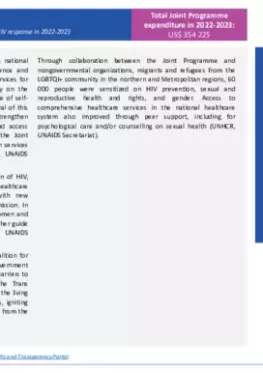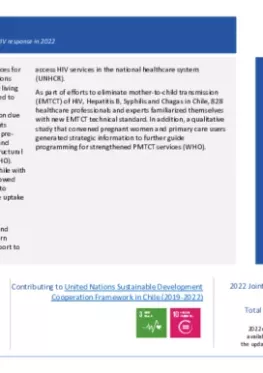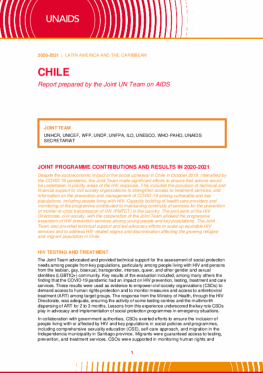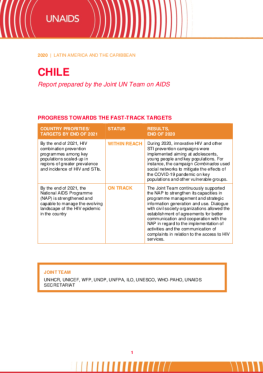|
Chile
In 2022-2023, the Joint Programme’s support to Chile’s national HIV response has been critical in strengthening evidence and policies aimed at expanding equitable access to HIV services for vulnerable and key populations. For instance, a study on the acceptance of HIV self-testing, which showed 94.7% rate of self-testing among 739 participants, indicated strong approval of this service among key populations as well as the need to strengthen community-led service delivery to improve uptake and access (WHO, UNAIDS Secretariat). Persistent advocacy from the Joint Programme further led to the scale-up of HIV prevention services in prisons, including PrEP and rapid diagnosis (WHO, UNAIDS Secretariat).
As part of the efforts to eliminate vertical transmission of HIV, hepatitis B, syphilis and chagas disease in Chile, 828 healthcare professionals and experts familiarized themselves with new technical standards for the prevention of vertical transmission. In addition, a qualitative study that convened pregnant women and primary care users generated strategic information to further guide programming for strengthened services (WHO, UNAIDS Secretariat).





